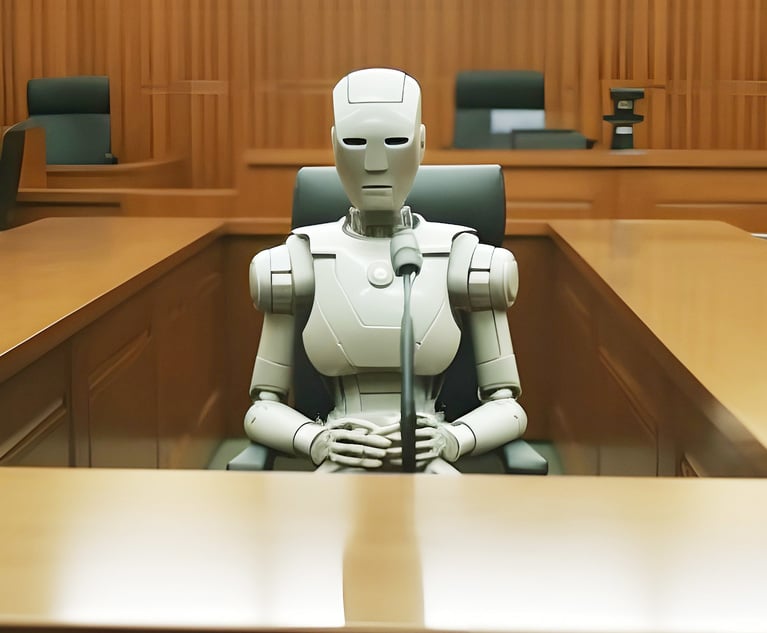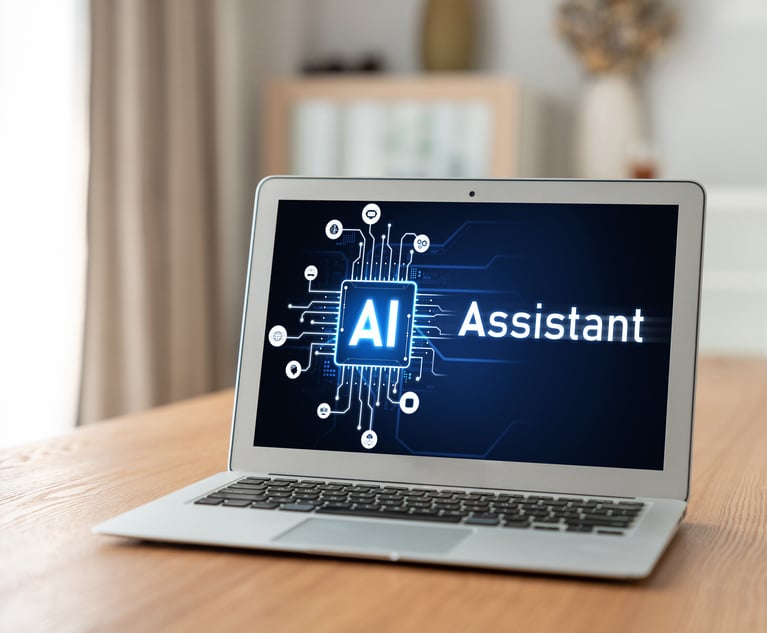Microsoft CLO Announces 'Shared Innovation Initiative' to Boost Collaboration, Protect IP
"There is growing concern that without an approach that ensures that customers own key patents to their new solutions, tech companies will use the knowledge to enter their customer's market and compete against them—perhaps even using the IP that customers helped create," CLO Brad Smith wrote in a blog post.
April 05, 2018 at 02:05 AM
3 minute read
 (Photo: Coolcaesar via Wikimedia Commons)
(Photo: Coolcaesar via Wikimedia Commons) In 2018, grocery stores are being automated, cars are driving themselves, and nontech companies are putting a strong focus on innovation.
And Microsoft Corp.'s chief legal officer has taken note. In a blog post published late Wednesday, president and CLO Brad Smith announced the Redmond, Washington-based company's Shared Innovation Initiative, which gives nontech companies that innovate using Microsoft's software or collaborate with Microsoft consultants and engineers ownership of patents produced during these engagements.
“There is growing concern that without an approach that ensures that customers own key patents to their new solutions, tech companies will use the knowledge to enter their customer's market and compete against them—perhaps even using the IP that customers helped create,” Smith wrote.
Under the initiative's principles, Microsoft and the companies they innovate with will continue to own the IP they brought to the collaboration, as well as the improvement to that IP created together.
“The co-creation of new technology in the world today seldom starts from scratch,” Smith wrote. “At Microsoft, we bring our existing products, IP, and expertise, and our customers do the same thing, often reflecting their world-leading expertise in their particular field. Our ability to co-create relies on both companies respecting each other's IP.”
But, when that new tech does start from scratch and new projects begin, Smith says the customers Microsoft collaborates with will own the IP and any design rights resulting from the collaborative work. For shared source code, Microsoft will work with customers ”to contribute to an open source project any code the customer is licensed to use.”
Customers will be able to use the innovation created with Microsoft on non-Microsoft platforms if they so choose, Smith says. Microsoft will appoint executive officers to stay in contact with collaborators throughout the process, an effort to boost transparency and keep customers informed.
“We believe this initiative and these principles offer a path that will ensure that the co-creation of digital technologies creates new economic value to companies throughout the economy and around the world, rather than for just a few select companies in the tech sector,” Smith wrote.
“And of course, it's a path that we believe will enable Microsoft to continue to grow as well,” he added. “In short, it strikes a balance where we and our customers can each focus on what we do best, working together with trust and confidence that we will help each other become more successful.”
This content has been archived. It is available through our partners, LexisNexis® and Bloomberg Law.
To view this content, please continue to their sites.
Not a Lexis Subscriber?
Subscribe Now
Not a Bloomberg Law Subscriber?
Subscribe Now
NOT FOR REPRINT
© 2025 ALM Global, LLC, All Rights Reserved. Request academic re-use from www.copyright.com. All other uses, submit a request to [email protected]. For more information visit Asset & Logo Licensing.
You Might Like
View All
AG in Texas Is Nation's First to Bring Gen AI Enforcement Action in Health Care
5 minute read
In-House Lawyers Weigh In on How AI Will Revolutionize Dispute Resolution

AI Tools Creating Digital Paper Trails That Could Haunt Companies in Court

'This Worries Me Gravely': Regulators Struggle to Set Ground Rules for AI Decision-Making Tools
Trending Stories
- 1Wachtell Partner Leaves to Chair Latham's Liability Management Practice
- 2Morris Nichols Partners to Be Involved With PLI Program
- 3How I Made Practice Group Chair: 'Cultivating a Culture of Mutual Trust Is Essential,' Says Gina Piazza of Tarter Krinsky & Drogin
- 4People in the News—Feb. 3, 2025—Antheil Maslow, Kang Haggerty, Saxton & Stump
- 5Patent Pending ... and Pending ... and Pending? Brace Yourself for Longer Waits
Who Got The Work
J. Brugh Lower of Gibbons has entered an appearance for industrial equipment supplier Devco Corporation in a pending trademark infringement lawsuit. The suit, accusing the defendant of selling knock-off Graco products, was filed Dec. 18 in New Jersey District Court by Rivkin Radler on behalf of Graco Inc. and Graco Minnesota. The case, assigned to U.S. District Judge Zahid N. Quraishi, is 3:24-cv-11294, Graco Inc. et al v. Devco Corporation.
Who Got The Work
Rebecca Maller-Stein and Kent A. Yalowitz of Arnold & Porter Kaye Scholer have entered their appearances for Hanaco Venture Capital and its executives, Lior Prosor and David Frankel, in a pending securities lawsuit. The action, filed on Dec. 24 in New York Southern District Court by Zell, Aron & Co. on behalf of Goldeneye Advisors, accuses the defendants of negligently and fraudulently managing the plaintiff's $1 million investment. The case, assigned to U.S. District Judge Vernon S. Broderick, is 1:24-cv-09918, Goldeneye Advisors, LLC v. Hanaco Venture Capital, Ltd. et al.
Who Got The Work
Attorneys from A&O Shearman has stepped in as defense counsel for Toronto-Dominion Bank and other defendants in a pending securities class action. The suit, filed Dec. 11 in New York Southern District Court by Bleichmar Fonti & Auld, accuses the defendants of concealing the bank's 'pervasive' deficiencies in regards to its compliance with the Bank Secrecy Act and the quality of its anti-money laundering controls. The case, assigned to U.S. District Judge Arun Subramanian, is 1:24-cv-09445, Gonzalez v. The Toronto-Dominion Bank et al.
Who Got The Work
Crown Castle International, a Pennsylvania company providing shared communications infrastructure, has turned to Luke D. Wolf of Gordon Rees Scully Mansukhani to fend off a pending breach-of-contract lawsuit. The court action, filed Nov. 25 in Michigan Eastern District Court by Hooper Hathaway PC on behalf of The Town Residences LLC, accuses Crown Castle of failing to transfer approximately $30,000 in utility payments from T-Mobile in breach of a roof-top lease and assignment agreement. The case, assigned to U.S. District Judge Susan K. Declercq, is 2:24-cv-13131, The Town Residences LLC v. T-Mobile US, Inc. et al.
Who Got The Work
Wilfred P. Coronato and Daniel M. Schwartz of McCarter & English have stepped in as defense counsel to Electrolux Home Products Inc. in a pending product liability lawsuit. The court action, filed Nov. 26 in New York Eastern District Court by Poulos Lopiccolo PC and Nagel Rice LLP on behalf of David Stern, alleges that the defendant's refrigerators’ drawers and shelving repeatedly break and fall apart within months after purchase. The case, assigned to U.S. District Judge Joan M. Azrack, is 2:24-cv-08204, Stern v. Electrolux Home Products, Inc.
Featured Firms
Law Offices of Gary Martin Hays & Associates, P.C.
(470) 294-1674
Law Offices of Mark E. Salomone
(857) 444-6468
Smith & Hassler
(713) 739-1250






